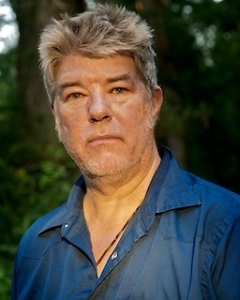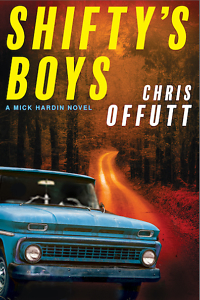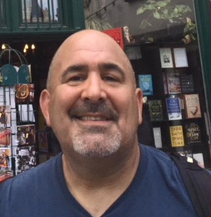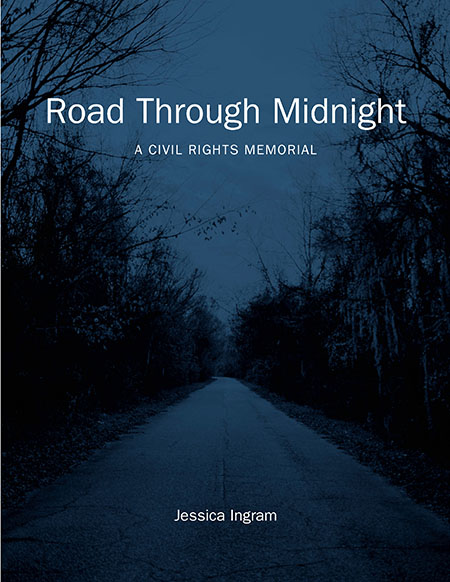Return to Rocksalt
Chris Offutt delivers another intense Kentucky thriller in Shifty’s Boys
The epigraph “These hills don’t change” in Chris Offutt’s Shifty’s Boys is lifted from Cesare Pavese’s “South Seas,” a prose poem about Pavese’s native Langhe hills in Italy, highland country where laborers made a paltry sum working in the wineries. Nobody is making an honest fortune in Offutt’s hills of eastern Kentucky, either, and like 2021’s The Killing Hills, the new book begins with a murder and features Mick Hardin, an Army CID investigator as its protagonist. The author knows the terrain — he was raised in eastern Kentucky.

Offutt does not waste any time getting to the story. The local cabbie finds a dead man, Barney Kissick, in a parking lot on page three. Barney is the resident heroin dealer and son of Shifty Kissick, the local no-nonsense matriarch who always keeps a pistol by her side. When Mick visits Shifty to offer his condolences, she asks him to find her son’s killer because she believes the police are snubbing the case. Shifty is outraged: “{T]he pupils of her eyes had constricted with anger. Her right eye focused on his right eye, a sign of aggression.” Her facial expressions satisfied Mick enough to agree to her request, and from there the plot moves at warp speed.
Offutt’s deep understanding of the area is displayed through his characters. Mick is currently nursing a bum leg injured in a roadside bomb attack in Afghanistan. Sheriff Linda Hardin, Mick’s sister, is busy running for re-election; Johnny Boy Tolliver is her deputy. Johnny Boy’s cousin, Jacky Turner — “Keen as a briar. Crazy as a soup sandwich” — can fix anything. Dr. Harker from the local college, who is “short, energetic, and quick on her feet,” is an intellectual who specializes in soil forensics. Marquis Sledge III whose “father and grandfather had performed the same job” is the local undertaker who doubles as the county coroner. Then there is Ray Kissick, Shifty’s gay son who eventually becomes Mick’s acolyte.
 Mick’s investigation begins in earnest when he visits Sledge, who notices dirt on Barney’s boots and clay underneath the deceased man’s fingernails. Since Barney was found in an asphalt parking lot, Mick is intrigued by these inconsistencies, so he asks Dr. Harker to examine the soil and clay. While Mick awaits her findings, he focuses his attention on Barney’s drug connections, believing Barney’s death was a drug deal gone bad. But when Dr. Harker finds traces of limestone in the clay and toxic waste in the dirt on Barney’s boots, Mick understands that Barney’s death was not only about drugs. His pursuit of the truth leads him to a sordid underworld full of nefarious characters and deadly secrets.
Mick’s investigation begins in earnest when he visits Sledge, who notices dirt on Barney’s boots and clay underneath the deceased man’s fingernails. Since Barney was found in an asphalt parking lot, Mick is intrigued by these inconsistencies, so he asks Dr. Harker to examine the soil and clay. While Mick awaits her findings, he focuses his attention on Barney’s drug connections, believing Barney’s death was a drug deal gone bad. But when Dr. Harker finds traces of limestone in the clay and toxic waste in the dirt on Barney’s boots, Mick understands that Barney’s death was not only about drugs. His pursuit of the truth leads him to a sordid underworld full of nefarious characters and deadly secrets.
Although the hunt for Barney’s killer takes up the better part of the book, Offutt masterfully threads scenes of Mick’s deteriorating relationship with his wife, Peggy. These powerful sections provide the reader with a glimpse into Mick’s vulnerable psyche.
Offutt’s tribute to his home state is further displayed in iconic imagery, including “the hundred-year-old cabin where Mick grew up,” a smokehouse, mushroom mines, and a 1960s-era pickup: “The weight of the engine had pressed the front tires so hard the rubber had split. Twigs and dead grass spilled from a crevice in the tire where small animals had denned up, probably mice.”
Offutt has written a propulsive literary thriller with an intricate plot that tests Hardin’s mettle throughout the book. His characters are true to the area, and his keen eye for the local setting transports the reader to Appalachia. Let’s hope Offutt’s hills don’t change in his next Mick Hardin novel, so we can revisit Rocksalt, Kentucky, very soon.

Wayne Catan is a book critic whose work has appeared in The New York Times, USA Today, Los Angeles Review of Books, Minneapolis Star Tribune, Chicago Review of Books, The Millions, and The Hemingway Review. He attended the University of Tennessee, Knoxville where he was an NCAA Division I All-American wrestler before completing his career at Syracuse University as a three-time consensus All-American.


